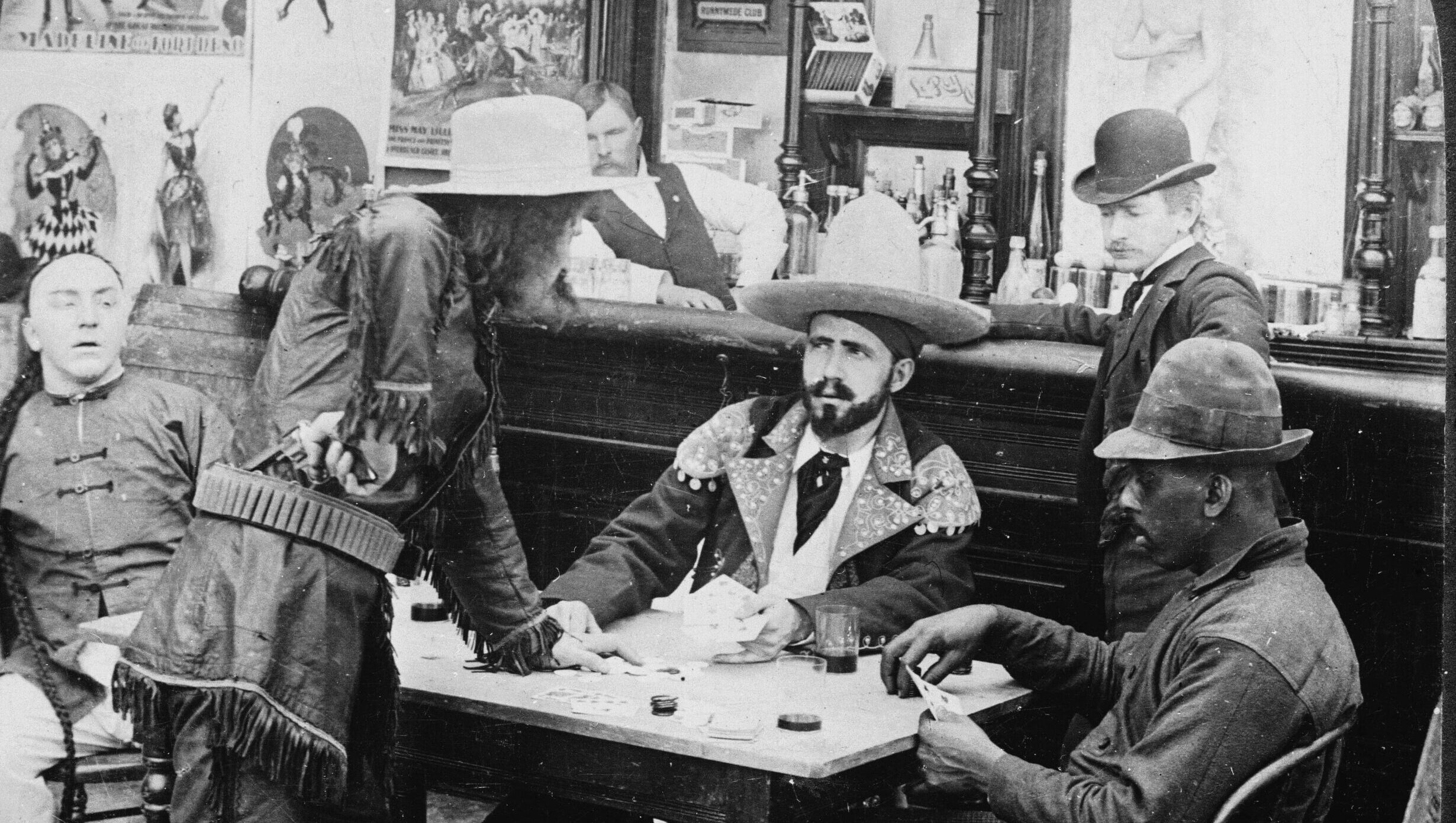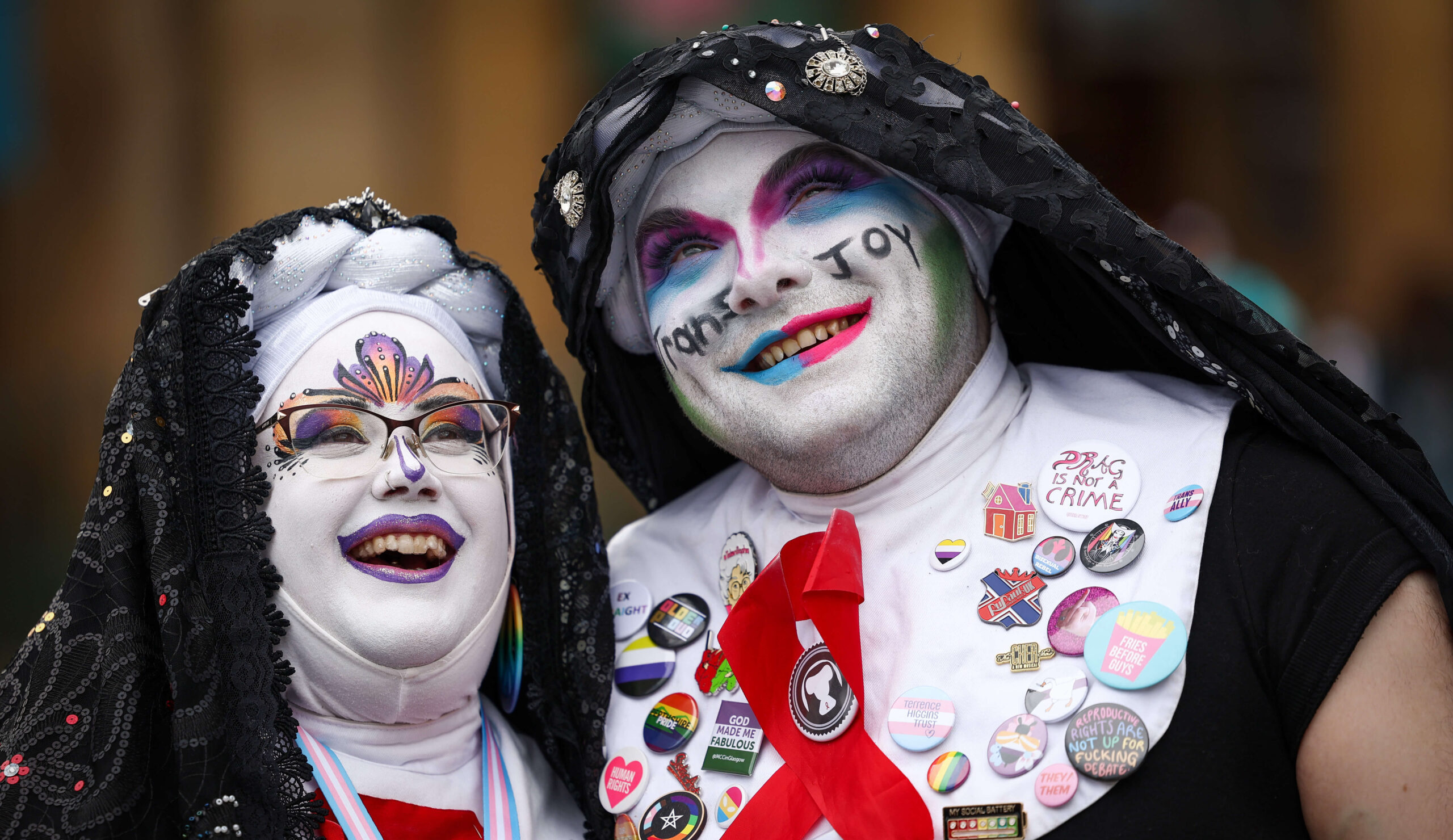The Age of Secularization
By Augusto Del Noce
Edited and translated by Carlo Lancellotti
(McGill-Queen’s University Press, 2017)
An American approaches this book with some hesitation. Although Augusto Del Noce (1910–1989) is one of the most important figures in twentieth-century Italian political philosophy, he remains little known in this country. But Del Noce faced a situation similar to our own, in which many cultural institutions are accommodating themselves to the left and a new elite is emerging by posing as a revolutionary vanguard, promoting “self-realization” rather than traditional norms.
Born in Tuscany, Del Noce spent much of his early life in Turin, where he received a degree in philosophy in 1932. His career splits into three general stages. Before the war, Del Noce focused on early modern philosophy, especially the French metaphysician Nicolas Malebranche. During the 1930s and into the Second World War, Del Noce taught and published on contemporary French thought, with which he had come into contact before the war. Turin was a center of anti-fascist thought, which Del Noce also absorbed into his work. After the war, he concentrated on the relationship between Catholicism and Communism, and was one of the early Italian interpreters of Jacques Maritain. During these years, Del Noce unraveled arguments for a continuing alliance between Communists and Catholics, who had joined together to fight the fascists. Del Noce contended that liberal goods, like democracy and individual freedoms, could only occur within a Christian framework, so Marxism, like fascism before it, needed to be rejected. In the 1960s and 1970s, Del Noce moved away from academic philosophy, writing popular essays and becoming a member of the Italian Senate, where he supported the Christian Democrats and Antonio De Gasperi, who served as prime minister from 1945 to 1953.
These topics may seem of little interest to American readers. Marxism was never a direct force for social change in the United States. And didn’t we defeat fascism in the Good War? But that attitude would be mistaken. The social and cultural dysfunction evident today was already present in the Italy of the 1960s. Drawing on writers like Maritain and Eric Voegelin, Del Noce saw further than most of his contemporaries. Del Noce transcends his midcentury setting because he recognized that Marxism is more than a reductionist economic theory. At the same time, and perhaps more fundamentally, it is a materialist and atheist anthropology whose descendants haunt contemporary public debate in the guise of progressivism or secular humanism.
Del Noce saw that the anthropological elements of Marxism would devour its other parts. Rather than pointing toward the end of history, “Marxism has ended up being a stage in the development of the technological and affluent society, which accepts all its negations of traditional thought but at the same time eliminates its messianic and (in its own way) religious aspects.” What is left after the revolution is a materialist and atheistic core that thrives even when the Marxist political and economic program fails. What this meant in practice was that the affluent society (società opulenta—the same Italian title used for John Kenneth Galbraith’s famous work, of which Del Noce seems to have been aware) proved more resilient than its radical critics hoped. Just as it produced enough material goods to satisfy consumer demand, foiling Marxist predictions of immiseration and eventual class war, it also transformed Marxism’s teleology into a nontranscendent spirituality that justified and encouraged the pursuit of these worldly goods.
In the 1964 essay “Dialogue Between the Church and Modern Culture,” Del Noce argues that the affluent society replaces universal values with subjective ones. Although it includes no transcendent God, this perspective is no less of a “religion” than is Christianity. The position that Del Noce calls “natural irreligion”
is characterized by the refusal even to pose the problem in terms of theism versus atheism, because it is not interesting [original emphasis], and by a relativism so absolute that all ideas are viewed as relative to the psychological and social situation of those who affirm them, and so can be evaluated from a utilitarian standpoint, as life stimulants. As a consequence, everything becomes purely an object of commerce. This is symbolized by the disappearance of modesty; in the most elementary forms everything is reduced to “water, sleep, sex,” falling, in short, into pure animalism.
The reference to modesty is striking, in that Del Noce sees that virtue as important to the maintenance of civilization. Removing objective standards of behavior points toward a society whose main goal is to satisfy physical appetites. Yet Del Noce has no a priori opposition to technology. Indeed, he insists that “condemning technical activity is so foreign to Christian thought,” and he is careful to insist he is no reactionary. The problem is that in the affluent society technological and economic “well-being” becomes the final goal of all life, individual and political.
In other words, Del Noce rejects the Marxist view that economics drives culture. Without culture and its attendant explanation through story and ritual, what is left instead is “the quest for well-being,” where intellectuals “serve the public not in order to elevate it but to satisfy the need for novelty.” One need only look at the current adulation of TED talks or Silicon Valley to see confirmation of his prediction.
The rejection of transcendent principles sets the modern age apart from previous eras. It is not the case that other societies or moments agreed about metaphysical order or the right way to live. Early Christianity fought over the nature of divinity; the Reformation wrestled with the sacraments and the Church as mediator of grace; even early modernity fought over whether a personal God exists and acts in the life of the world. What is different now is that the debate over whether transcendent principles should guide individual or social lives no longer seems to be an important one to have. Even among those who participate in ethical discussion, the ethic of self-realization—often expressed as “rights talk”—predominates. Too often, these so-called rights are based on the notion that “my truth”—what Del Noce calls the “psychological and social situation”—is incontestable, dissolving the world into a multitude of perspectives that are incomprehensible to one another. The only thing that is common is whether these individual truths can be monetized, something the affluent society does very well.
Del Noce thus stands at the beginning of the debate concerning the future of liberalism now breaking out among Catholic thinkers like Adrian Vermeule, Patrick Deneen, Ross Douthat, Robert Miller, and R. R. Reno. Some, like Vermeule and Deneen, argue that liberalism is in its final stages and that it is not compatible with a true understanding of human flourishing or Western civilization more broadly. Others, such as Douthat, recognize the challenges of liberalism but argue for some set of compromises or other arrangements with the liberal order, fearing the alternative is political unrest and even violence.
Del Noce prefigures the main lineaments of this debate. For example, he considers, then rejects, a strategy similar to the one identified by Rod Dreher as the Benedict Option. Del Noce describes this position as affirming Christians’ “status as a minority,” encouraging them to “focus on their own interior purification and apostolic work, which is the only way to bring about the conversion of their adversaries.” The danger is that such a “catacombal” church will focus on a constant search for its own faults, leaving an opening for those who advocate for the church to adapt to the contemporary world. In a surprising conclusion, Del Noce writes, “the transition to progressivism, starting from an apparently opposite view, is actually easy.” This insight is one not always appreciated by proponents of the Benedict Option. Overcritical internality may further progressivism, not protect against it.
Del Noce also acknowledges the hope that affluent-technological society can accommodate traditional ways of life. All that is necessary, it might be thought, is to extract the “goods” of secular ideologies like Marxism or liberalism and ally them with Christianity. In a 1967 piece written specifically for Catholics, Del Noce contended that the “peculiarity” of modern atheism “is that it does not call itself explicitly atheistic, because it limits itself to what is verifiable, making no pronunciation about the unverifiable.” Because it dwells in the realm of “facts,” it seems that this form of atheism does not impinge belief. Yet the admission that religious beliefs are unverifiable by scientific reasoning invites their dismissal as irrational.
The apparent objectivity of the new atheism is a ruse, however. For Del Noce, “due to its professed relativism about values and the concrete evaluations it leads to, [atheism] replaces a direct struggle against religion with an indirect one and thereby endangers religion even more, because it erodes the religious dimension until it erases from consciousness all traces of the question of God” [original emphasis]. The modern version of the struggle between belief and unbelief is not a headlong fight between God and not-God. It is a dismissal of the theological question as irrelevant to scientific inquiry.
As Vermeule has written, however, liberalism has its own liturgical character, its sacred holidays and ceremonies, its saints and villains, its eschatology in the form of eventual triumph over “hate” by the forces of “tolerance,” and even—as we see in the apologies of public and private figures when they have transgressed liberal orthodoxy—confession and redemption narratives. A society that celebrates Earth Day and recognizes Wicca as a religion is not a Christian society, but that does not mean it isn’t based on particular beliefs about society and human nature. Such a society can satisfy a human need for the sacramental, but does so in a way that leaves holiness and morality at the mercy of markets and political power.
But what is so terrible about an increasingly rich society that provides endless consumer choice, in ethics no less than foods and services? Del Noce hints at a response in an essay titled “Common Morality in the Nineteenth Century and the Morality of Today.” Responding to a comment by Sartre that man should arrogate to himself the ability to “create,” a power formerly attributed to God alone, Del Noce proposes that, in human hands, this creative potential is necessarily destructive and negative. He writes: “It is not coincidental that [liberalism] went hand in hand with the fortune of the works of the Marquis de Sade, who on this occasion has been elevated to the ranks of a great moralist. When every objective order is denied, in what else can the will find a content except in the idea of destroying this order?” Written in the annus horribilis of 1968, even Del Noce could not have foreseen how prophetic this prediction would prove. In 2017, France officially classified one of the Marquis’s works as a “treasure” of French literature. Like Deneen, then, Del Noce thinks that a successful secularism is one that ends in its negation. A world that elevates the rational will descend to the irrational, and a society that looks for a god in each of us will instead find a beast.
So what is the answer? Like many conservative thinkers, Del Noce offers a better diagnosis than a cure. A student of Maritain, and writing in a setting where the Church was associated with authoritarianism, Del Noce rejected an “alliance with conservative forces.” Rather, he thought the liberal age could be accommodated to the technological, so long as transcendent religious belief is preserved. Democracy devolves into tyranny of a political or cultural kind without the ballast of a belief system outside itself. So political efforts should be dedicated to recognizing the separate existence of that religious aspect of life, and cultural efforts made to recognize the different vision of the person presented by religious belief.♦
Gerald J. Russello is editor of the University Bookman and author of The Postmodern Imagination of Russell Kirk.
Founded in 1957 by the great Russell Kirk, Modern Age is the forum for stimulating debate and discussion of the most important ideas of concern to conservatives of all stripes. It plays a vital role in these contentious, confusing times by applying timeless principles to the specific conditions and crises of our age—to what Kirk, in the inaugural issue, called “the great moral and social and political and economic and literary questions of the hour.”














